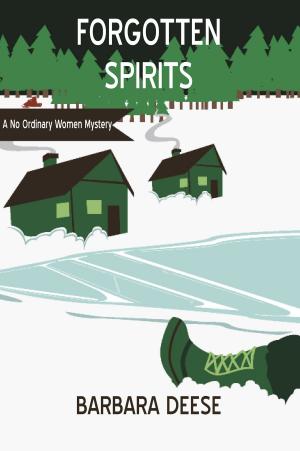| Author: | RCS Hutching | ISBN: | 9781979249072 |
| Publisher: | RCS Hutching | Publication: | December 11, 2017 |
| Imprint: | Language: | English |
| Author: | RCS Hutching |
| ISBN: | 9781979249072 |
| Publisher: | RCS Hutching |
| Publication: | December 11, 2017 |
| Imprint: | |
| Language: | English |
People don't just disappear. They are not there one second and gone the next. On the other hand, seeing is believing.
Signoret was a man in his early fifties and although no more than five feet ten inches tall, was broadly built with a deep chest and powerful shoulders. He looked the Englishman directly in the eyes and in his smoker's voice growled “I think it is a matter of murder, Marti. Let me explain in more detail. You know I told you I had bought some land over to the west of the city? Well, to be precise, it was a derelict former football ground - originally home to one of several Dijon based clubs formed around the time of the first world war. The club was called Dijon Olympique and became very successful very quickly. They had on their books a player by the name of Didier Lebrun, who if playing today would be described as world class and valued in the many millions. He was a star in all senses of the word and his goals propelled the club to the top of our first division three times in succession, the last of which was the season 1923-24 following which, Didier Lebrun disappeared. He simply vanished and not a whisper has been heard of him since - until now, that is. That's ninety-one years, Marti, ninety-one!”
The Cross of St Livianus was said to have been fashioned from the sword carried by the Centurion who attended the crucifixion of Jesus. It is first mentioned in a letter from Sir Guy de Fenton who was part of the 1st Crusade in the 11th Century. The sword was taken to France and is next heard of among the sacred artefacts of a French abbey in the region of Dijon at the time of the Burgundian Wars. Count De Bruyon and his men are reported to have stopped at the abbey and received a blessing from the cross on their way to join the forces of Charles the Bold before the siege of Neuss in 1473. Nothing more was recorded until the mid-nineteenth century when a certain Claude Somer discovered the cross whilst digging on his land.
When Martin and Anna Price investigate the disappearance of a famous French footballer almost a century earlier they also learn the story of the Cross of St Livianus, said to be owned by the Somer family. Why that family should wish to halt their investigation is unclear. The unexpected appearance of an old friend from England brings further complications into what should have been a quiet summer in Sarony.
People don't just disappear. They are not there one second and gone the next. On the other hand, seeing is believing.
Signoret was a man in his early fifties and although no more than five feet ten inches tall, was broadly built with a deep chest and powerful shoulders. He looked the Englishman directly in the eyes and in his smoker's voice growled “I think it is a matter of murder, Marti. Let me explain in more detail. You know I told you I had bought some land over to the west of the city? Well, to be precise, it was a derelict former football ground - originally home to one of several Dijon based clubs formed around the time of the first world war. The club was called Dijon Olympique and became very successful very quickly. They had on their books a player by the name of Didier Lebrun, who if playing today would be described as world class and valued in the many millions. He was a star in all senses of the word and his goals propelled the club to the top of our first division three times in succession, the last of which was the season 1923-24 following which, Didier Lebrun disappeared. He simply vanished and not a whisper has been heard of him since - until now, that is. That's ninety-one years, Marti, ninety-one!”
The Cross of St Livianus was said to have been fashioned from the sword carried by the Centurion who attended the crucifixion of Jesus. It is first mentioned in a letter from Sir Guy de Fenton who was part of the 1st Crusade in the 11th Century. The sword was taken to France and is next heard of among the sacred artefacts of a French abbey in the region of Dijon at the time of the Burgundian Wars. Count De Bruyon and his men are reported to have stopped at the abbey and received a blessing from the cross on their way to join the forces of Charles the Bold before the siege of Neuss in 1473. Nothing more was recorded until the mid-nineteenth century when a certain Claude Somer discovered the cross whilst digging on his land.
When Martin and Anna Price investigate the disappearance of a famous French footballer almost a century earlier they also learn the story of the Cross of St Livianus, said to be owned by the Somer family. Why that family should wish to halt their investigation is unclear. The unexpected appearance of an old friend from England brings further complications into what should have been a quiet summer in Sarony.















